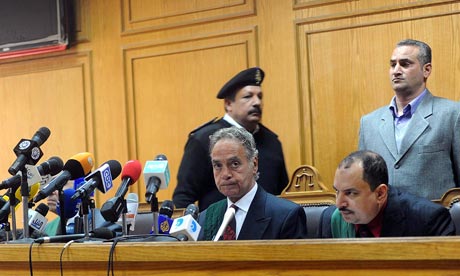NOVANEWS

By Omar Said
The No to Military Trials for Civilians campaign said on Monday that 3,000 civilians were tried in military courts in the last five months, since President Abdel Fattah al-Sisi passed new legislation treating certain state facilities as military institutions.
The findings formed part of the campaign’s fourth annual conference, which included testimonies from those who have been through military trials and their families.
Campaign member Sara al-Sherif says this constitutes a “dramatic” increase in an already endemic practice, presenting a greater challenge for the campaign, as public outrage has been more recently directed at harsh rulings by civilian courts.
She says people claim, “civilian judiciaries issue death penalties and life sentences without restriction, in contrast to verdicts by military judiciaries that are swift and will never be worse than what is already practiced in civilian courts,” but maintains this is not accurate, given the nature of military courts and the verdicts they have issued.
Lawyer Ahmed Heshmat raises concerns over the independence of military courts in the first place. “The law that enabled military courts to try civilians stipulated that this judiciary is independent, but it is not independent at all. Military judges are employees of the Defense Ministry, and as such they have to adhere to the demands of their superiors.”
“Verdicts issued by military courts should be approved by the military leader or his deputy, and he has the right to request the amending of a sentence, or a retrial if the defendants were acquitted,” he adds.
Heshmat also questioned the legal procedures for military trials. Verdicts by military courts are all issued as if the defendants are present, even if they are actually absent.
Since Sisi’s decree, the number of civilians referred to military courts has increased, especially among students arrested on campuses for protesting, many of who have been handed lengthy prison sentences. Universities are now considered military institutions under the new law.
An activist in the “Horreya” (freedom) campaign, concerned with the detention of students, Seif al-Islam Farag, said that the campaign has recorded the cases of 160 students referred to military tribunals, including 48 students from Mansoura University, 31 from Al-Azhar University and 14 from Monufiya University.
He added that the sentences against many of these students are not based on reality, as in the example of student Ahmed Shokier, who was sentenced to life in prison, when he had actually passed away one month before the incident for which he was convicted took place. Another student in Port Said was referred to 11 military tribunals.
Mother of 16-year-old Youssef Shaaban, who was arrested in September, says her son was tortured to make him confess to crimes he didn’t commit, including killing a police officer. The grieving mother says she is not able to visit her son in prison as no one knows his whereabouts.
Father of 19-year-old Ain Shams student Mohamed al-Araby, said that he was surprised when five police officers stormed his house and arrested his son. They said his son had published a video concerning the military and would face charges of “spreading false news about the Armed Forces.” The father was told his son would return home in a few hours, but he never came back.
“Days later, I found a lawyer asking for a lot of money to defend my son who was facing a military trial. When I went to military prosecution, they said there is no need to hire a lawyer, as the case would be heard by a misdemeanor court and not a criminal one. I have just realized that the case was referred to criminal court,” Araby’s father added.
Araby himself spent many weeks in military prison before he was referred to Tora, with signs of torture on his face, according to his father.
The No to Military Trials campaign organizers pleaded with local media to raise the issue of military trials for civilians, which they say threatens everyone under the new legislation.



